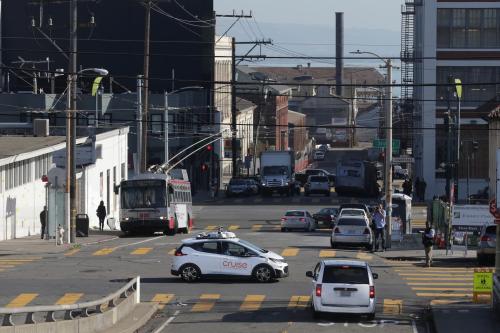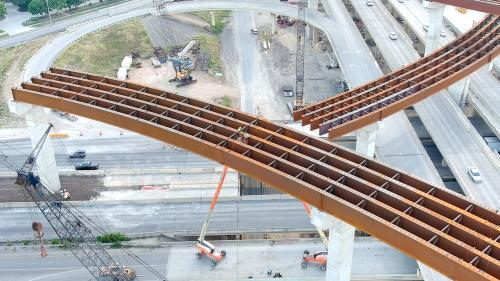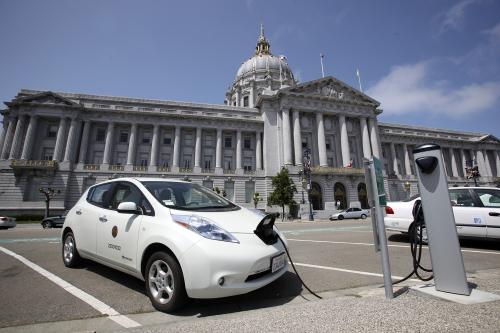On April 29, 2025, Senior Fellow Adie Tomer testified before the U.S. House Subcommittee on Highways and Transit.
Tomer’s testimony affirmed the importance of the Highway Trust Fund, a fiscal tool that allows federal lawmakers, as well as state, regional, and local owners of physical infrastructure assets, to plan and invest in long-term transportation projects with greater financial stability and predictability.
However, Trust Fund revenues have failed to keep up with expenditures for over two decades. Tomer urged Congress to reform program spending, which in turn should inform the fiscal instruments used to raise revenue. Adopting such investment policies in this way will create more economically dynamic and secure communities for generations to come.
In his written testimony, Tomer recommended three specific areas for Congress to address regarding Trust Fund solvency and capabilities:
- Eliminate the local to state subsidy: From 1956 through the end of the century, Congress and the states perfected a system to capture revenue to build the country’s 160,000-mile network of highways from scratch. Now, the federal government is still generating tax revenue from use of local roads but apportioning almost all spending to the states—and local roads are suffering accordingly. Returning some Trust Fund resources to localities and their shared regions is both a fairer approach and a prudent response to the country’s greatest maintenance needs.
- Improve asset management systems: Congress will be able to stretch the reach of Trust Fund dollars if they improve policies related to Transportation Asset Management Plans, which help measure surface transportation needs. For example, federal law could expand monitoring requirements to major, locally owned roads and then set ceilings on recommended roadway quality, all of which could help spread investment to those roadways most in need.
- Adopt a bipartisan commission to study revenue alternatives: There are a range of fiscal instruments that can make the Trust Fund solvent, including gas tax increases, vehicle registration fees, road user charges, and more. To help bring clarity to what could be the most difficult reauthorization question—where does the country find the money?—a nonpolitical group can assemble information to provide clarity around tax incidence, timing, and other thorny issues.
The United States has the capacity to keep investing enough in our surface transportation network to promote national economic competitiveness and security—and the Highway Trust Fund is a well-suited tool to channel investment dollars to where they will advance such national goals, Tomer wrote. Yet it would be a wasted opportunity if Congress did not couple considerations of new revenue with efforts to reform how the country measures need, who controls the funding, and the processes by which funding recipients comply with federal rules.
To read Tomer’s full testimony, click here. To watch the testimony video, click here.
The Brookings Institution is committed to quality, independence, and impact.
We are supported by a diverse array of funders. In line with our values and policies, each Brookings publication represents the sole views of its author(s).




Commentary
TestimonyHow to reform the Highway Trust Fund for greater impact
May 2, 2025